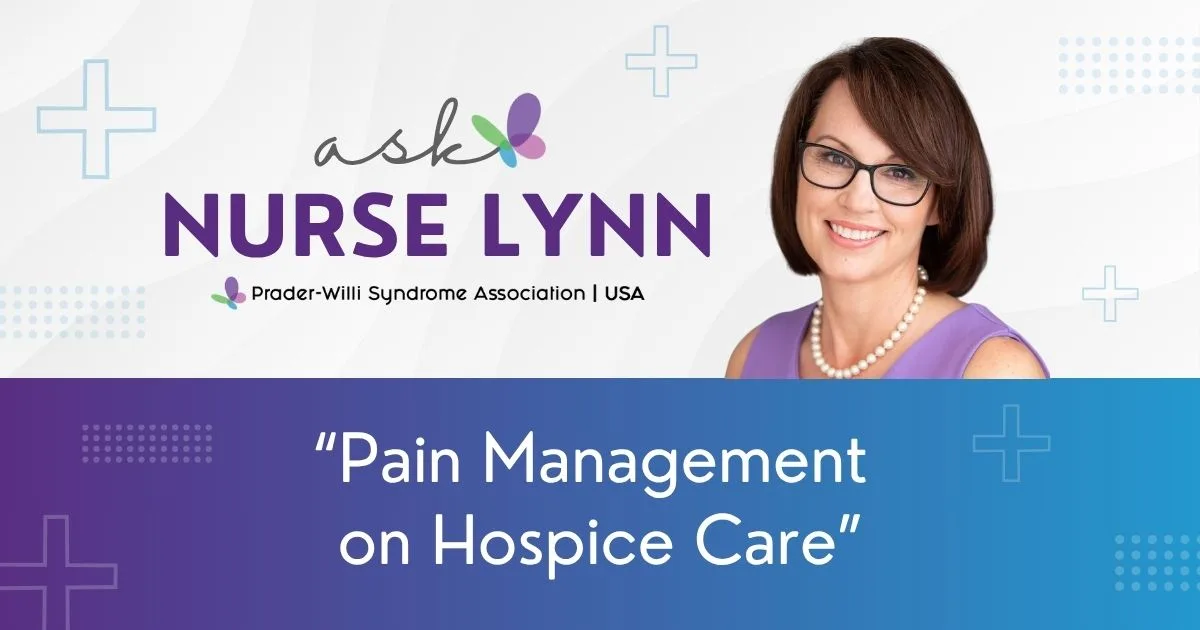Question:
Female, 60 years old, Unknown Subtype
My sister is on hospice with cardiomyopathy. She has been prescribed morphine for pain, but it seems to be making it worse. She appears to be having symptoms of toxicity at a very low dose. She often reacts differently to medications and I’m wondering what we can give her? Any suggestions will be considered.
Nurse Lynn’s Response:
I’m sorry to hear about your sister’s condition. Managing pain for our individuals on hospice care, can be challenging, especially when there’s an unusual sensitivity to medications like morphine. While I am not a doctor, I can provide some considerations and suggestions that you can discuss with her hospice care team:
1.Reassess Morphine Dosage
- – It’s possible your sister is unusually sensitive to morphine or experiencing side effects that mimic toxicity, such as respiratory depression, confusion, or hypotension.
- – Her hospice team may adjust the dose or frequency or try a different route of administration.
2.Alternative Pain Medications
- – Fentanyl: This opioid can be considered as an alternative. It may be easier on her heart because it causes less histamine release and hypotension.
- – Hydromorphone (Dilaudid): Another opioid option, often used when morphine causes intolerable side effects.
- – Methadone: Occasionally used in hospice for pain control, it has unique properties that make it effective for certain types of pain, though it requires close monitoring.
- – Buprenorphine: A partial opioid agonist that may have a lower risk of respiratory depression.
3.Non-Opioid Options
- – Acetaminophen: For mild to moderate pain.
- – Topical Analgesics: Such as lidocaine patches for localized pain.
4.Consult the Hospice Care Team
- – Hospice teams are specialized in providing comfort and addressing medication sensitivities. Let them know about her reactions so they can tailor her treatment plan.
- – If necessary, request a consultation with a palliative care pharmacist or pain management specialist.
Do you have a non-emergency medical question for Nurse Lynn? Submit your question here:
Share this!





 Perry A. Zirkel has written more than 1,500 publications on various aspects of school law, with an emphasis on legal issues in special education. He writes a regular column for NAESP’s Principal magazine and NASP’s Communiqué newsletter, and he did so previously for Phi Delta Kappan and Teaching Exceptional Children.
Perry A. Zirkel has written more than 1,500 publications on various aspects of school law, with an emphasis on legal issues in special education. He writes a regular column for NAESP’s Principal magazine and NASP’s Communiqué newsletter, and he did so previously for Phi Delta Kappan and Teaching Exceptional Children. Jennifer Bolander has been serving as a Special Education Specialist for PWSA (USA) since October of 2015. She is a graduate of John Carroll University and lives in Ohio with her husband Brad and daughters Kate (17), and Sophia (13) who was born with PWS.
Jennifer Bolander has been serving as a Special Education Specialist for PWSA (USA) since October of 2015. She is a graduate of John Carroll University and lives in Ohio with her husband Brad and daughters Kate (17), and Sophia (13) who was born with PWS. Dr. Amy McTighe is the PWS Program Manager and Inpatient Teacher at the Center for Prader-Willi Syndrome at the Children’s Institute of Pittsburgh. She graduated from Duquesne University receiving her Bachelor’s and Master’s degree in Education with a focus on elementary education, special education, and language arts.
Dr. Amy McTighe is the PWS Program Manager and Inpatient Teacher at the Center for Prader-Willi Syndrome at the Children’s Institute of Pittsburgh. She graduated from Duquesne University receiving her Bachelor’s and Master’s degree in Education with a focus on elementary education, special education, and language arts. Evan has worked with the Prader-Willi Syndrome Association (USA) since 2007 primarily as a Crisis Intervention and Family Support Counselor. Evans works with parents and schools to foster strong collaborative relationships and appropriate educational environments for students with PWS.
Evan has worked with the Prader-Willi Syndrome Association (USA) since 2007 primarily as a Crisis Intervention and Family Support Counselor. Evans works with parents and schools to foster strong collaborative relationships and appropriate educational environments for students with PWS. Staci Zimmerman works for Prader-Willi Syndrome Association of Colorado as an Individualized Education Program (IEP) consultant. Staci collaborates with the PWS multi-disciplinary clinic at the Children’s Hospital in Denver supporting families and school districts around the United States with their child’s Individual Educational Plan.
Staci Zimmerman works for Prader-Willi Syndrome Association of Colorado as an Individualized Education Program (IEP) consultant. Staci collaborates with the PWS multi-disciplinary clinic at the Children’s Hospital in Denver supporting families and school districts around the United States with their child’s Individual Educational Plan. Founded in 2001, SDLC is a non-profit legal services organization dedicated to protecting and advancing the legal rights of people with disabilities throughout the South. It partners with the Southern Poverty Law Center, Protection and Advocacy (P&A) programs, Legal Services Corporations (LSC) and disability organizations on major, systemic disability rights issues involving the Individuals with Disabilities Education Act (IDEA), Americans with Disabilities Act (ADA), and the federal Medicaid Act. Recently in November 2014, Jim retired.
Founded in 2001, SDLC is a non-profit legal services organization dedicated to protecting and advancing the legal rights of people with disabilities throughout the South. It partners with the Southern Poverty Law Center, Protection and Advocacy (P&A) programs, Legal Services Corporations (LSC) and disability organizations on major, systemic disability rights issues involving the Individuals with Disabilities Education Act (IDEA), Americans with Disabilities Act (ADA), and the federal Medicaid Act. Recently in November 2014, Jim retired.